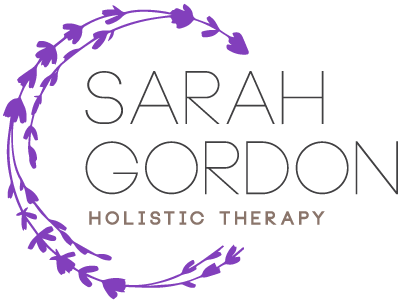Have you experienced relief from a tension-busting massage, rebalanced and re-energised with reflexology, felt calmer and slept soundly after a reiki healing? If you have, then you already know something about complementary therapy (also known as holistic therapy) and the many benefits it provides.
The treatments mentioned above, as well as many other touch and non-touch therapies, don’t fall within conventional healthcare boundaries. However, they are used alongside mainstream medicine to help manage symptoms. Complementary therapies are also an increasingly popular go-to as a preventative measure to stay well, injury free, help manage stress and anxiety levels, along with building resilience to life’s many challenges.
For some, having a treatment is purely a way to relax, unwind and enjoy some quality “me-time” away from daily stresses. For others, it’s more about a journey, progressively working to improve emotional, physical and spiritual health with the support of a therapist.
Are you ready to press pause on life’s treadmill and boost your well-being? Here are 7 reasons why complementary therapies may help you achieve just that.
It’s not just about the symptoms
Your therapist will spend time getting to know the “whole” you by taking an extensive medical/lifestyle history before commencing any treatment. At no time will they profess to cure or diagnose, referring you to your GP where necessary. Their ultimate aim is to discover possible reasons for the underlying cause of your salient symptoms, provide a therapeutic treatment or consultation and offer advice to help deal with the core issues that may be triggering the presenting problem.
Mind Body Connection
Do you find you get repeated sore throats? This can be linked to holding back on speaking up and supressing your thoughts and feelings. The mind, body and spirit are intrinsically linked. If there is an imbalance in one area, this is likely to manifest elsewhere. Depending on your therapist’s skillset, they will work with you to help all areas of your health.
Hands-on approach
Never underestimate the power of touch therapy and its positive impact, helping us to feel nurtured and cared for. They support us to be more in tune and connected with our bodies, raising our awareness and encouraging us to take more care of ourselves.
Balance is key
Modern life is fast and stressful. Rarely do people allow themselves the proper rest they need to thrive. Incorporating holistic therapies into your self-care can be used as a way to restore balance. The treatments themselves work to harmonise mind and body in order to bring about homeostasis (natural state of balance). Clients generally say they feel calmer and more relaxed after a treatment. Feeling more centred and grounded means you’re likely to be less reactive and more pro-active in effectively coping with life’s many spinning plates such as work, family commitments and social connections.
Prevention is better than cure
We’re all familiar with this saying. I’m sure we would all prefer to prevent an illness from happening in the first place rather than having to deal with it once the symptoms have set in. The 2021 Federation of Holistic Therapists’ member survey reports that 62% of people sought help from a therapist as a preventative approach to health, highlighting the importance placed on acting before it’s too late.
A problem shared is a problem halved
Your therapist provides an empathetic ear. They support you with a confidential, safe space outside of your usual network to offload, talk about your health concerns and help you move forward. You may not feel able to talk about everything at the initial appointment, however, the continuity of care with the same person will aid that journey.
Natural approach to health
Quite often clients say to me they want to embrace a more natural, holistic approach to health rather than take certain medications with undesirable side effects. They want to explore the reasons why they might be experiencing certain symptoms and look at ways they can help themselves such as introducing new sleep routines, mindset changes, self-care rituals and setting boundaries.
Finding the right therapist for you
Not all therapists are for every client and not all clients are for every therapist. Three different people offering the same treatment will all be unique in the way they work and the help they provide. Test the waters and see how you feel with different practitioners. It’s important to find someone you resonate with as you’ll get so much more out of your time with them. Your therapist is there to act as a catalyst for change, empowering you to make positive lifestyle transformations and support you in taking charge of your health and well-being.
You may want to seek recommendations from friends or family. Browse websites to get a feel for an individual. First and foremost, make sure whoever you see is appropriately qualified, insured and works to a strict code of conduct. One way to know this is if they are a member of a professional association such as The Federation of Holistic Therapists, which I belong to.
If you want reassurance before booking an appointment, reach out and ask questions. A professional therapist will be very happy to answer your queries and advise if they think a different therapy to their skillset would be more beneficial for you.
Take action and find a new path!
Whether to help manage specific symptoms, use as a preventative method to maintain overall well-being, or to incorporate some well-deserved me-time into a busy life, more people are embracing an holistic approach to care for themselves with the use of complementary therapy. It’s a means to help you feel better mentally and physically, so you’re more likely to make healthier choices and manage the stress of modern life with more resilience and ease.
Is there a health issue you are struggling with? Do you need help taking that first step? If the answer is yes, get in touch and we can prioritise your health goals together.



